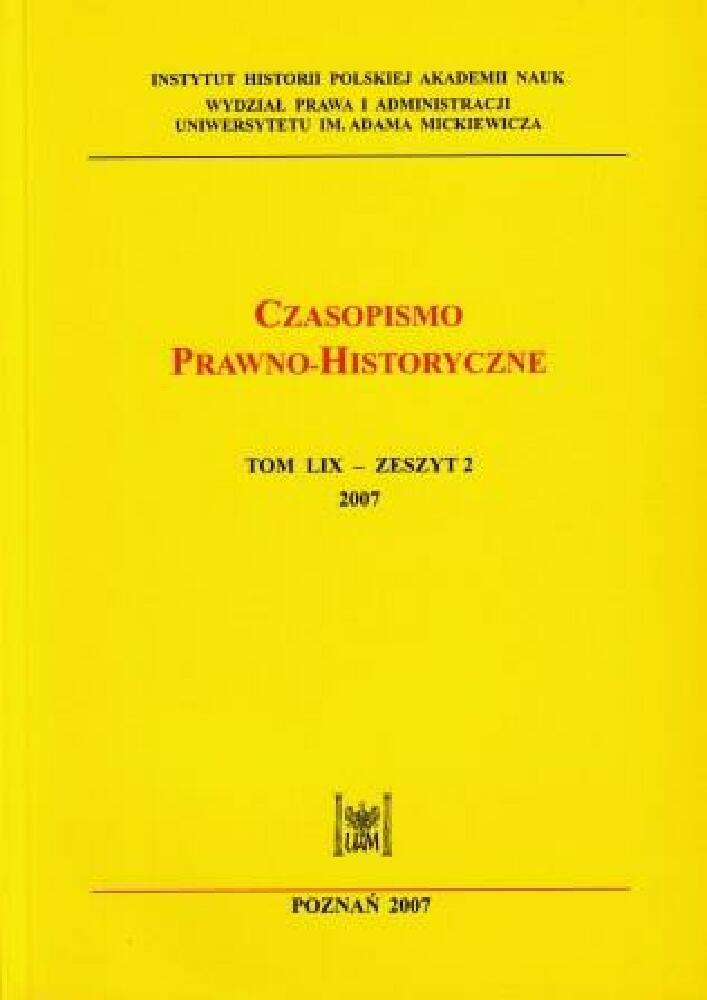Abstract
On 16 December 2005 the Seym of the Republic of Poland resolved that the year 2006 shall be devoted to the memory of Jan Laski, the Great Crown Chancellor, Archbishop of Gniezno and the Primate of Poland (1465-1531). At the same time Laski’s monumental work - a collection of laws called Jan Laski’s Statute, published in 1506 in Kraków, was recounted. The writing of the Statute was prompted by the need to implement the provisions of the Mielnik Agreement of 1501 concluded by the Crown (Kingdom of Poland) and the Great Dutchy of Lithuania. Laski’s Statute was not so much ‘an official publication of Polish Acts’ as rather an official collection of established laws, a code containing the binding legal acts, sometimes slightly modified, written down in chronological order. It was intended to serve as a collection of ius commune for the nobles, as well as town dwellers.
Jan Laski’s Statute had played a major role in the political and legal life in Poland of the last Jagiellonians ( 1506-1562). It served the nobles as a tool in their political struggle for better laws and their proper execution that commenced in the 20s of the 16th century. The Statute may also serve as an important source of information for the lawyers today. Good law should respect the principles of a civilised legal order. Those principles can be found in Laski’s Statute when we read that ‘an act has no recourse to the past’ (Kazimierz Wielki Statute from about 1350) or about the protection of acquired rights and the right to defence. In some other place we find a list of features that should characterise a law enacted by a state employer. The course book on Summa utriusque iuris in chapter on Qualis sit lex reads: ‘An atc should be honest, simple, fait, possible, necessary, useful and clear and in compliance with the nature as well as habits and customs of the state, relevant and proper for the place and time, made with the common good in mind’. All these constitute an element of the old rule of law exercised in Poland long ago, according to which in Poland the law is King (in Polonia lex est rex').
Funding
Digitalisation and OA co-funded by the Minister of Education and Science (Poland) under contract no. BIBL/SP/0002/2023/1
License
Copyright © by Faculty of Law and Administration, Adam Mickiewicz University, Poznań, 2007OPEN ACCESS




